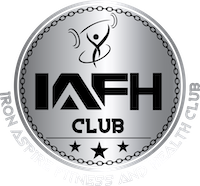In the pursuit of fitness goals, whether it’s gaining muscle, losing weight, or improving overall health, the role of nutrition cannot be overstated. While exercise is crucial for physical fitness, nutrition is equally important, if not more, in achieving desired results. Let’s delve into why nutrition is paramount in supporting your fitness journey.
Understanding the Basics of Nutrition
Before diving into the specifics, it’s essential to grasp the basics of nutrition. Nutrition is the process of providing the body with the necessary nutrients to function optimally. These nutrients include carbohydrates, proteins, fats, vitamins, and minerals, all of which play unique roles in sustaining health and facilitating bodily functions.
The Impact of a Well-Balanced Diet
A well-balanced diet forms the foundation of nutrition for fitness enthusiasts. It involves consuming a variety of foods from all food groups in appropriate proportions to meet nutritional needs. Carbohydrates serve as the body’s primary source of energy, powering workouts and aiding in muscle recovery. Proteins, crucial for muscle repair and growth, help maintain and build lean muscle mass. Fats play a role in hormone regulation and provide sustained energy during endurance activities.
Macronutrients and Their Role in Performance
Macronutrients, namely carbohydrates, proteins, and fats, are essential for optimizing performance during workouts. Carbohydrates, stored in the muscles as glycogen, fuel intense exercise sessions, allowing for longer and more productive training sessions. Proteins aid in muscle repair and growth, preventing muscle breakdown and promoting recovery post-exercise. Fats, while often misunderstood, are a valuable energy source during low to moderate-intensity activities and contribute to overall performance.
Meal Planning for Success
Meal planning is a crucial aspect of nutrition for individuals striving to reach their fitness goals. Planning meals in advance ensures that nutritional needs are met, and calorie intake aligns with fitness objectives. Incorporating a balance of macronutrients in each meal supports sustained energy levels and promotes satiety, reducing the likelihood of unhealthy snacking or overeating.
Adopting Healthy Eating Habits
Beyond meal planning, adopting healthy eating habits is key to long-term nutrition success. This includes mindful eating, paying attention to hunger and fullness cues, and choosing whole, nutrient-dense foods over processed options. Hydration is also vital for fitness and nutrition, as adequate water intake supports performance and aids in digestion and nutrient absorption.
“Success in fitness isn’t just about the sweat you shed in the gym, but also the fuel you provide your body with. Embrace the power of nutrition to fuel your journey towards a stronger, healthier you!”
Conclusion
In conclusion, nutrition plays a fundamental role in achieving fitness goals. A well-balanced diet rich in macronutrients is essential for supporting performance, aiding in recovery, and optimizing overall health. By prioritizing nutrition alongside exercise, individuals can maximize their fitness results and embark on a journey to a healthier, stronger self. Remember, consistency and nutrition go hand in hand on the path to success.




